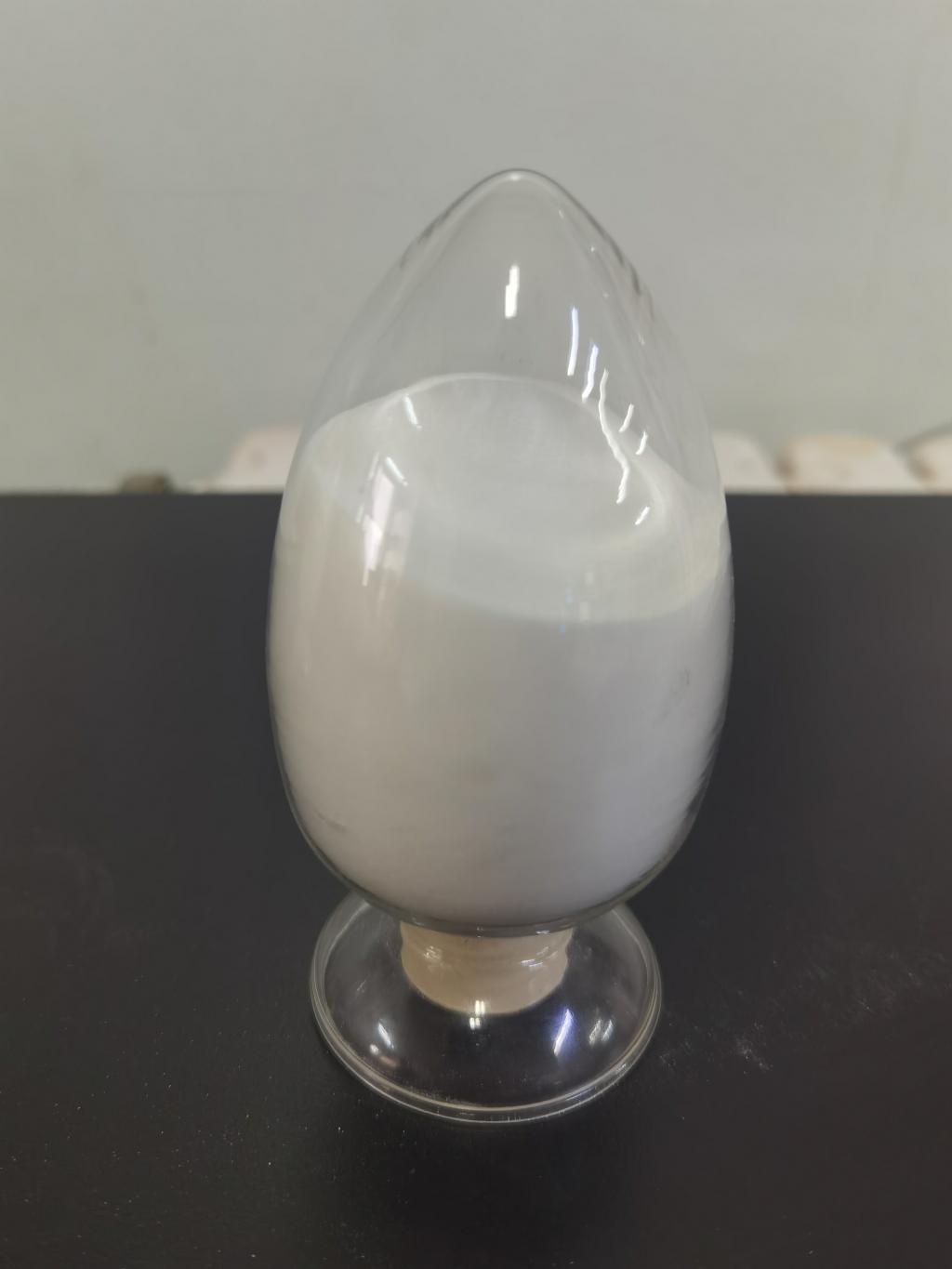Tel:0086 18231198596

News
Current Position:
Home >
News
>ε-Polylysine Hydrochloride Application in Enhancing Beverage Preservation.
ε-Polylysine Hydrochloride Application in Enhancing Beverage Preservation.
TIME:2023-11-08
Understanding ε-Polylysine Hydrochloride
1.1 Origins
ε-Polylysine is a naturally occurring antimicrobial compound produced through the fermentation process of specific Streptomyces strains. It was first discovered in Japan in the 1960s, and its antimicrobial properties have been harnessed for various applications, including food and beverage preservation.
1.2 Molecular Structure
ε-Polylysine is a peptide composed of a variable number of L-lysine residues. Its molecular structure includes a long chain of positively charged amino acids, which is integral to its antimicrobial properties. This unique structure allows ε-polylysine hydrochloride to interact with and inhibit the growth of microorganisms, primarily bacteria.
Antimicrobial Properties of ε-Polylysine Hydrochloride
The primary function of ε-polylysine hydrochloride is to inhibit the growth of microorganisms, making it an effective natural preservative for beverages:
2.1 Broad-Spectrum Activity
ε-Polylysine hydrochloride exhibits broad-spectrum antimicrobial activity, making it effective against various microorganisms, including both Gram-positive and some Gram-negative bacteria. This versatility allows it to address multiple spoilage and pathogenic threats in beverages.
2.2 Cell Membrane Disruption
One of the key mechanisms of ε-polylysine hydrochloride's antimicrobial action is its ability to disrupt bacterial cell membranes. It does so by interacting with the negatively charged components of the membrane, which ultimately leads to the destruction of the bacterial cell. This bactericidal action helps ensure the safety and quality of beverages.
2.3 Synergistic Effects
ε-Polylysine hydrochloride can work synergistically with other preservation methods, such as heat treatments and low pH levels. These combinations enhance its antimicrobial effectiveness, allowing it to provide an additional layer of protection for beverages.
Applications in Beverage Preservation
ε-Polylysine hydrochloride is a versatile antimicrobial agent used in a wide range of beverage categories to extend shelf life and ensure safety and quality:
3.1 Soft Drinks
Soft drinks, which include carbonated beverages and non-carbonated fruit-flavored drinks, benefit from ε-polylysine hydrochloride's ability to inhibit microbial growth and maintain product freshness. It contributes to the preservation of both taste and quality.
3.2 Juices
Fruit juices, whether they are 100% pure or blended, can be susceptible to spoilage due to their high water content and nutrient-rich composition. ε-Polylysine hydrochloride helps extend the shelf life of juices by inhibiting the growth of spoilage microorganisms.
3.3 Dairy-Based Beverages
Dairy-based beverages, such as milkshakes, yogurt drinks, and smoothies, rely on ε-polylysine hydrochloride to maintain their safety and freshness. The antimicrobial agent helps prevent the proliferation of spoilage bacteria and pathogens, ensuring product quality.
3.4 Alcoholic Beverages
Even alcoholic beverages, such as beers and wines, can benefit from ε-polylysine hydrochloride's antimicrobial action. It helps control yeast and bacterial contamination, particularly during the fermentation and bottling processes.
3.5 Plant-Based and Functional Beverages
With the rise in plant-based and functional beverages, ε-polylysine hydrochloride has found applications in products like plant-based milk, protein-enriched beverages, and energy drinks. Its role in preserving these diverse beverages aligns with the demand for clean label and natural products.
ε-Polylysine Hydrochloride's Role in Extending Shelf Life
One of the critical functions of ε-polylysine hydrochloride in the beverage industry is extending the shelf life of products. By inhibiting the growth of microorganisms, this natural antimicrobial agent helps prevent spoilage and maintain the safety and quality of beverages over an extended period.
4.1 Reduced Microbial Contamination
Microbial contamination in beverages can lead to off-flavors, off-odors, and even potential health risks. ε-Polylysine hydrochloride works to reduce microbial contamination, ensuring that beverages remain safe for consumption and free from spoilage.
4.2 Preservation of Flavor and Nutritional Value
Beverages often contain fragile flavor compounds and nutrients that can degrade over time. By preserving the microbial stability of beverages, ε-polylysine hydrochloride helps maintain the flavor and nutritional value of the product, delivering a more consistent and desirable experience to consumers.
4.3 Reduction in Food Waste
As ε-polylysine hydrochloride extends the shelf life of beverages, it contributes to the reduction of food waste. Beverages that can be stored for longer periods are less likely to be discarded prematurely, resulting in environmental and economic benefits.
Impact on Ensuring Product Safety
Product safety is a top priority in the beverage industry. The use of ε-polylysine hydrochloride plays a pivotal role in ensuring product safety by inhibiting the growth of microorganisms. This is especially crucial in beverages that are susceptible to contamination due to their liquid and nutrient-rich nature.
5.1 Prevention of Foodborne Illness
Contaminated beverages can pose a risk of foodborne illnesses, including gastrointestinal infections. ε-Polylysine hydrochloride's antimicrobial action reduces the likelihood of microbial contamination, thereby preventing potential health hazards associated with consuming contaminated beverages.
5.2 Regulatory Compliance
Beverage manufacturers must adhere to strict regulatory standards to ensure the safety of their products. The use of ε-polylysine hydrochloride helps manufacturers meet these standards by providing an effective and approved means of microbial control.
5.3 Enhanced Consumer Confidence
Consumers expect the beverages they purchase to be safe for consumption. The use of natural antimicrobial agents like ε-polylysine hydrochloride enhances consumer confidence, as it reflects the industry's commitment to product safety and quality.
Conclusion
ε-Polylysine hydrochloride's application in enhancing beverage preservation is a testament to its effectiveness as a natural antimicrobial agent. Its broad-spectrum antimicrobial activity, natural origin, and synergistic potential make it a valuable tool for the beverage industry. By inhibiting the growth of microorganisms, ε-polylysine hydrochloride contributes to extending the shelf life of beverages, maintaining product safety, and reducing food waste.
In an era where consumers increasingly seek clean label and natural products, ε-polylysine hydrochloride aligns with these preferences while ensuring that beverages remain safe, fresh, and of high quality. Its role in the beverage industry represents a commitment to both product safety and meeting the evolving demands of consumers in a diverse and dynamic market.

 CONTACT
CONTACT




